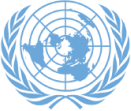Mr. Chairman,
At the outset, my delegation would like to aligns with the statement delivered by the distinguished representatives of Egypt on behalf of the Group of 77 and China. I would also like to thank the Secretary General for his reports under this agenda item.
Mr. Chairman,
I would like to highlight the following points in my national capacity.
The 2030 Agenda is a very road map to realize our future with a sustainable and inclusive development. As for my country, we aspire, by 2030, to consolidate its democratic governance, preserve ecological balance, eradicate poverty in all its forms and be amongst upper middle-income countries.
The Government of Mongolia has been taking important steps to insure coherence between the SDGs and the national development policies including the Green Development Policy and the State Policy on Energy.
Mr. Chairman,
Global warming, climate change and disaster risk are daunting challenges for humanity. These paramount challenges impact negatively to development of the LDCs, LLDCs, SIDS and also middle-income countries. My country, Mongolia is highly vulnerable to climate change due to its geographic location and fragile ecosystem. As a party to the Paris Agreement, Mongolia developed its Intended Nationally Determined Contribution to reduce 14% of greenhouse gas emissions by 2030 and is committed to achieve it.
We welcome the Secretary-General’s timely initiative to convene the Climate Summit in September 2019 for reviewing the Paris Agreement commitments.
Since 2016, the Government of Mongolia has been undertaking the National Action Plan on the Green Development Policy, which prioritized 255 activities to be implemented in two phases—up to 2020 and to 2030. Most importantly, it aims to increase the use of renewable energy in electricity generation from 7.6% in 2014 to 30% by 2030.
Mr. Chairman,
A reliable energy supply, efficiency and productivity, environmental sustainability and green development issues are assumed as a top priority in the Government’s energy policy. Mongolia’s first large scale renewable energy project, Salkhit 50 MW of wind power plant, has started its operation in 2012 and has integrated into the Central Region Energy System. Therefore, 10 MW of solar PV plants in the central region has already started and two other projects on wind power plant are ready to start their construction.
I would also like to underline that the President of Mongolia recently called upon the commencement of the Northeast Asian Super Grid project, which will provide a number of economic, social and environmental benefits, including energy security, job creation and reduction of carbon dioxide emissions to the countries of the Northeast Asian region.
Mr. Chairman,
Asia is one of the most disaster-prone regions in the world. We intend to engage constructively in the regional cooperation for enhancing disaster resilience, reducing disaster risk and increasing effectiveness of disaster prevention activities. Within this framework, we put forward an initiative to establish the Northeast Asia Disaster Risk Reduction Platform in Mongolia. The proposal had been discussed at the Ulaanbaatar Dialogue on Northeast Asia conferences and the Asian Ministerial Conference on Disaster Risk Reduction held in Ulaanbaatar in 2018 and received a support from regional countries for implementation.
To take this moment, I am pleased to highlight that the Government of Mongolia in collaboration with the United Nations Office for Disaster Risk Reduction hosted the second Asian Ministerial Conference on Disaster Risk Reduction in Ulaanbaatar in July 2018. As a regional platform, the Ministerial Conference provided the governments and stakeholders with opportunities to exchange experiences on good practices and innovative approaches to prevent, reduce and manage disaster risks. The conference took stock of the achievements gained in the implementation of the Sendai Framework for Disaster Risk Reduction and adopted the Ulaanbaatar Declaration and the Regional Action Plan for 2018–2020.
Mr. Chairman,
Before I conclude, I would like to underline that the strengthening the partnership with our development partners in sustainability is vital for sustainable development for countries like Mongolia.
I thank you.


